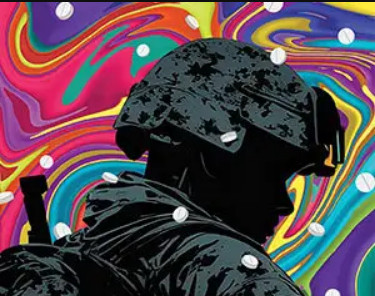Ketamine is gaining more and more attention as a promising treatment for depression. However, few studies have yet analyzed its effectiveness in real clinical conditions, especially in patients with complex mental disorders.
A new study based on veterans data, which repeatedly tried to treat depression but remained with severe symptoms, showed that the course of intravenous ketamine infusions helped many patients. In some cases, even complete remission has been achieved.
Key results of the study
- Almost 50% of veterans receiving Ketamine intravenous infusions in hospitals for US veterans, noted a significant decrease in depression symptoms after six weeks of treatment.
- In 25% of patients, depression decreased in half.
- 15% of patients reached complete remission after the infusion course.
- Most veterans continued to receive support infusion for several months.
Why are these results important?
The data of this study can help develop effective ketamine protocols for the treatment of depression in both military hospitals and civilian clinics. Because Ketamine has quickly attracted attention as an innovative agent, there was still no large -scale studies on its long -term efficiency.
Although ketamine treatment is becoming more and more accessible in veterans medical facilities, it is still limited. Usually the course of treatment is prescribed by a psychiatrist in cases where standard methods (antidepressants, psychotherapy) do not have effect.
Dr. Paul Pfifer and Dr. Avinash Gosanagar, researchers at the Michigan University Medical Faculty and Assistance Service to Veterans System of Health City Health City Ann-Arbor of Virginia (VAAHS), analyzed data from the National Medical Records of the Department of Electronic Medical Records.
How does ketamine treatment work?
Patients received an average of 18 infusions over several months. Initially, the treatment was carried out twice a week, and then the intervals gradually increased.
Despite significant results, researchers emphasize that Ketamine is not a "charming pill". Only a small proportion of patients experience significant relief after the first infusion. However, for those who have a long depression without positive dynamics from traditional methods, even partial improvement is an important achievement.
Complex profile of patients
In addition to depression, 70% of the study participants were diagnosed with post -traumatic stress disorder (PTSD), 50% had anxiety disorder, and 27% had problems with alcohol or psychoactive substances.
According to Dr. Gosanagar, chronic mental disorders can not be completely cured with ketamine, but it allows you to feel more improved, which can give patients hope.
Most veterans who turned to Ketamine Classes have already tested dozens of other treatments. On average, they received six different antidepressants over their lives, and 20% in the last year have been hospitalized due to mental disorders. Some have also tried electrovascular therapy (ECT) or transcranial magnetic stimulation (RTMS), but without significant results.
What next?
Ketamine was originally used as anesthetic and still requires special control because of the possibility of abuse. In 2019, the US Product and Medicinal Control Office (FDA) was approved by the Esketamin Nasal Spray (Ketamine form), which is used to maintain remission after intravenous treatment.
VAAhs offers both intravenous ketamine and nasal Esketamin to maintain the effect after a course of treatment. However, clinics that provide both options are still uncommon.
To provide safe treatment, patients with alcohol or drug abuse history should be in stable remission. Tests for the absence of psychoactive substances in the body are performed before each infusion.
Researchers plan to further analyze new data to compare the effectiveness of different treatment protocols in different hospitals and identify the factors that affect patients' abandonment.
Specialists in the Neuromodulation Program at the Michigan Medical Center also continue to study the use of ketamine along with other treatments such as ECT and RTMS.
Conclusions
Ketamine treatment opens new opportunities for patients with severe, standard depression. However, it requires careful control and individual approach.
As Dr. Pfifer emphasizes, we are only at the beginning of the path to a complete understanding of the impact of ketamine on mental health. The next decade can bring significant changes in the treatment of resistant depression and other complex mental disorders.
Expio Medical Center started actually Clinical study Ketamine-vicious integrative psychotherapy in military with post-traumatic stress disorder (PTSD) resistant to therapy.

